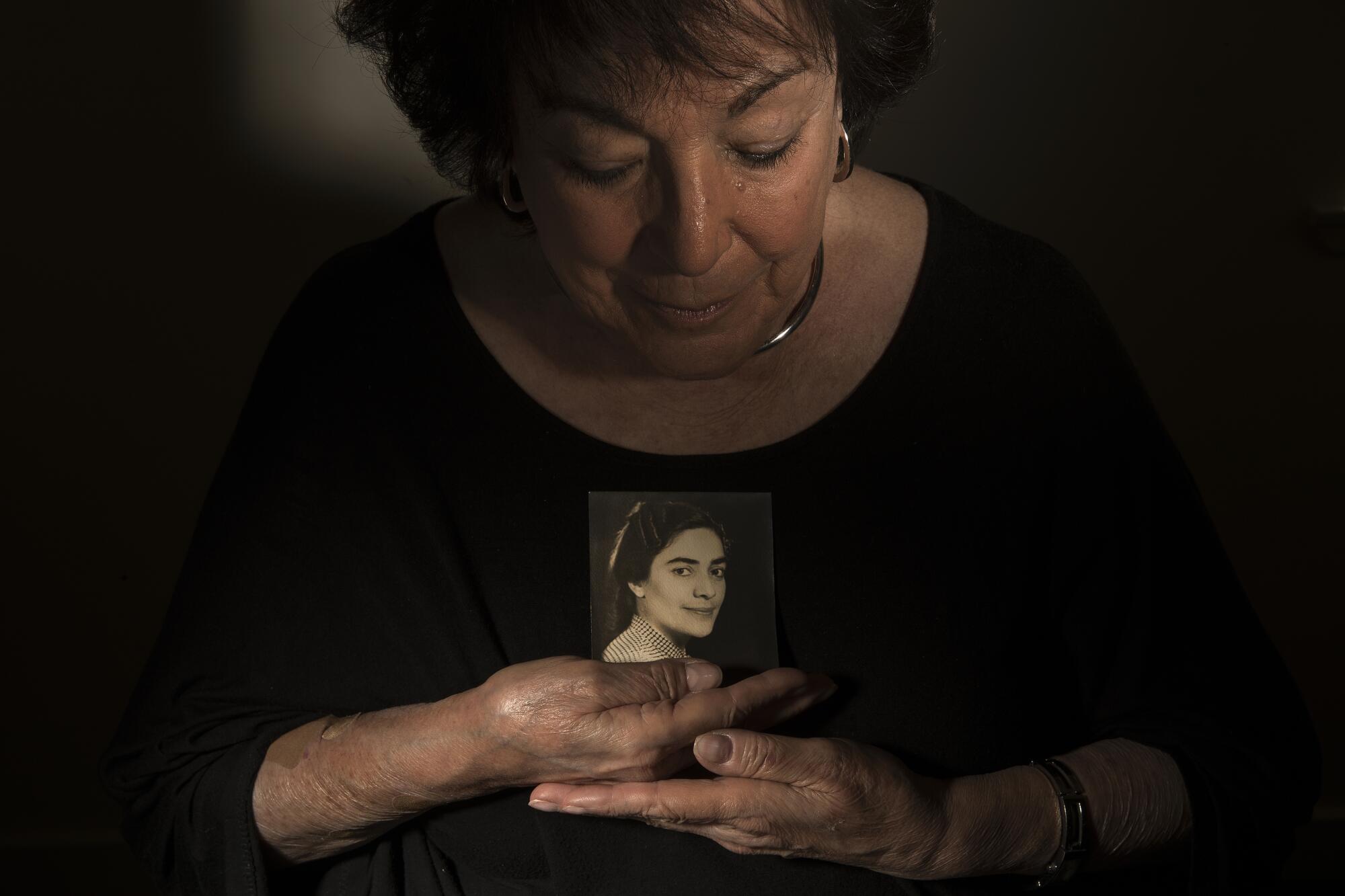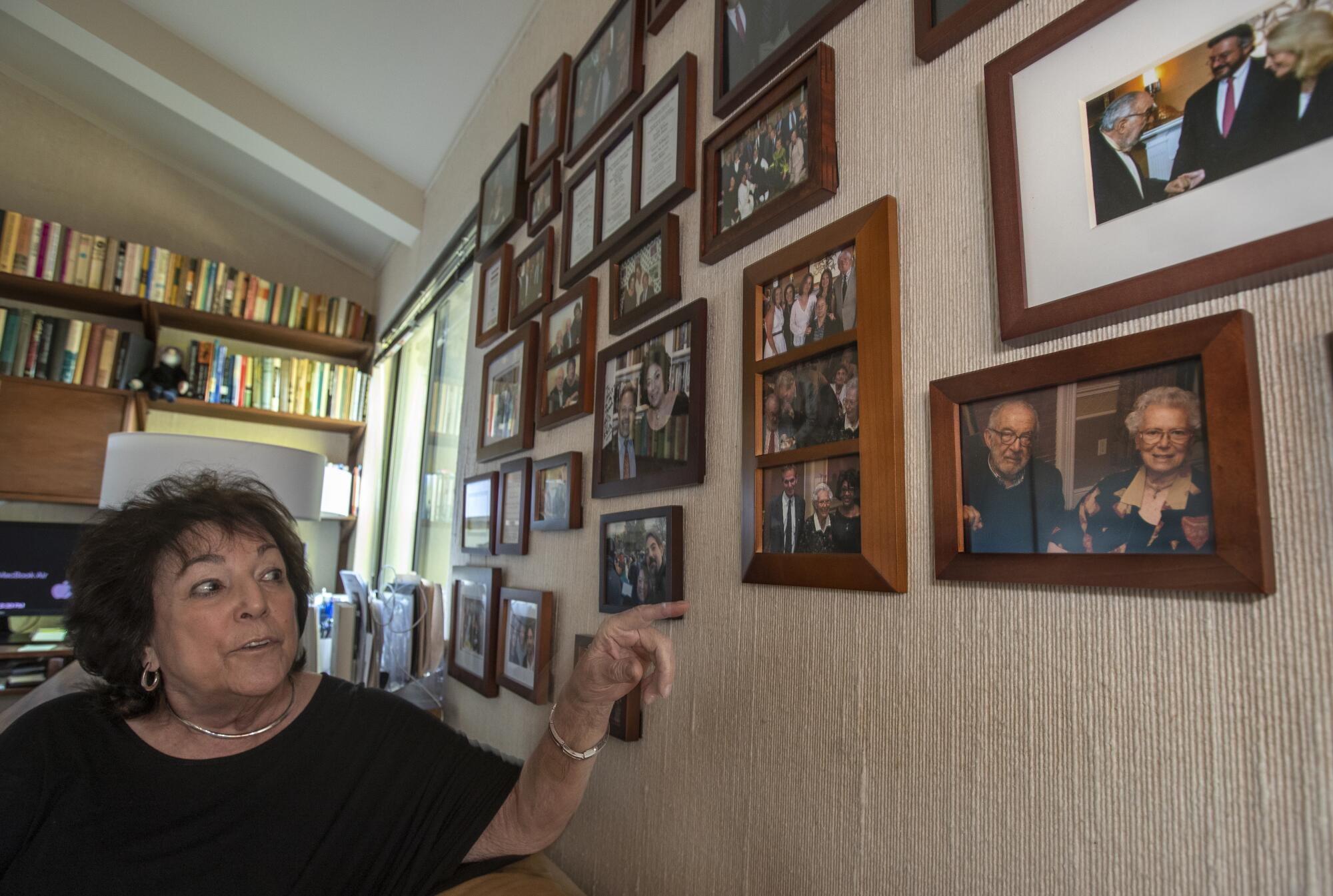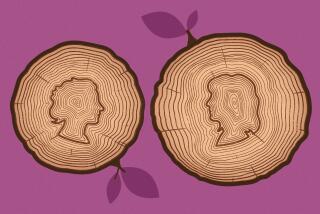
- Share via
For years, when I’d check in on my parents and ask what they were up to, they’d have to cut the phone call short.
“We’re on our way to the funeral home,” my mother or father would say.
“Who died?” I’d ask, not admitting how depressing it sounded to hear that trips to the mortuary had become their primary social activity.
The service was often for someone they’d known their entire lives in the small Bay Area town of Pittsburg, where my parents were both born, where they each made one last trip to the funeral home.
Now it’s my peers who are beginning to turn up in the death notices. I’m reminded of that line from the late actor and comedian Carl Reiner, who said he’d wake up and check the obituaries, and if he wasn’t in them, he’d eat breakfast.
Humor is one tool for confronting the inevitable, but that can be hard to pull off. Bravery is good, fear is natural, and denial works well, until it doesn’t.

Alice Lynn, a Pacific Palisades resident, sent me a note eloquently expressing her struggles with loss.
“For the second time this week the news was most unwelcome: two friends were diagnosed with terminal inoperable cancer. They have weeks to live,” Lynn wrote. “How can I, just turning 83, grasp more losses, after having experienced the deaths of five close friends in the last year and a half?”
With that, Lynn said the very words my parents surely thought, but never uttered.
“Ah, yes, many will say: It is to be expected,” Lynn continued. “When we reach a certain age (to be determined), we can expect to lose friends. But how do we react? Time after time? How can we integrate these losses and still feel grounded and not feel our own vulnerability?”
These are questions Lynn asks herself, and, as a therapist with more than 45 years on the job, they’re also questions she has heard from clients.
California is about to be hit by an aging population wave, and Steve Lopez is riding it. His column focuses on the blessings and burdens of advancing age — and how some folks are challenging the stigma associated with older adults.
“That’s when it’s the most difficult,” Lynn told me.
Yes, she can certainly identify with those who struggle with loss and fear of mortality.
“But it brings up the same feelings in me,” said Lynn. “They’ll say something and my response is, ‘I know exactly what you’re saying.’ That can be comforting to the person, but my job isn’t just to comfort. It’s to help them deal with and cope with [problems]. And sometimes there are no answers.”
I visited Lynn in her home, where she told me a story of survival that goes back to the Armenian genocide, when her mother and grandmother fled to Boston, then Fresno and, later, Westwood. She speaks in reverential terms of their sacrifice and resolve and says that her mother, married and divorced as a young woman, worked as a teacher, put her son through Princeton and sent Lynn to Stanford.
Lynn went through her own divorce at a relatively young age and said she’s now been alone longer than she was married. She has a daughter in the Bay Area, a son in L.A. and four grandchildren. Along with work and friends, her life is full.
But shadows are cast by what’s been lost, and by fears of what’s to come.
“We’re still living vibrant lives, most of the seniors I know,” Lynn said. “But we’re living under a different framework, which is the possibility of impending death or serious illness and of losing friends. It’s so far back in our thinking, and then it’s right there. It’s a companion to us.”
What’s crept in, for her, is “this sense of my own mortality. Of my vulnerability.”
Loss comes in three forms, Lynn said, and she’s given this a lot of thought because she’s writing a book about it.
“First is family. You have nobody who is your peer, and that in itself is startling,” she said.
Then the friends begin dropping, and “you’re never really prepared.”
And then it’s physical ability and mental acuity that fade. You find yourself thinking about managing stairs, wearing the right shoes for a walk, and whether you can park close enough to your destination to avoid too much back pain.
I smiled more than once. A smile of recognition. And yet I told Lynn my instinct is to push back against the weight of time. Of course we’re not what we once were, but we’re better in some ways, more familiar with ourselves, and not keen on being taken lightly. Those of a certain personality declare war on their own vulnerabilities, as my father did, fighting to hold onto his dignity.
Lynn knew a little bit about my parents because she had read my columns about losing them. I told her I had lost a son too. She had words of comfort and a keen understanding of the peace we search for in the spaces between grief and fear.
I appreciated that she had said there aren’t always answers. We want to believe there are fixes for every problem, but sometimes coping is all we can do. And coping is easier, we agreed, if you have someone to talk to.
Lynn said she meets regularly with a small group of friends, all therapists.
“The youngest is 70, the oldest is 85. We talk about what we can and can not do and how it’s impacting us. It’s better than therapy,” Lynn said.
“It’s four of us. There used to be five.”
More to Read
Sign up for Essential California
The most important California stories and recommendations in your inbox every morning.
You may occasionally receive promotional content from the Los Angeles Times.










